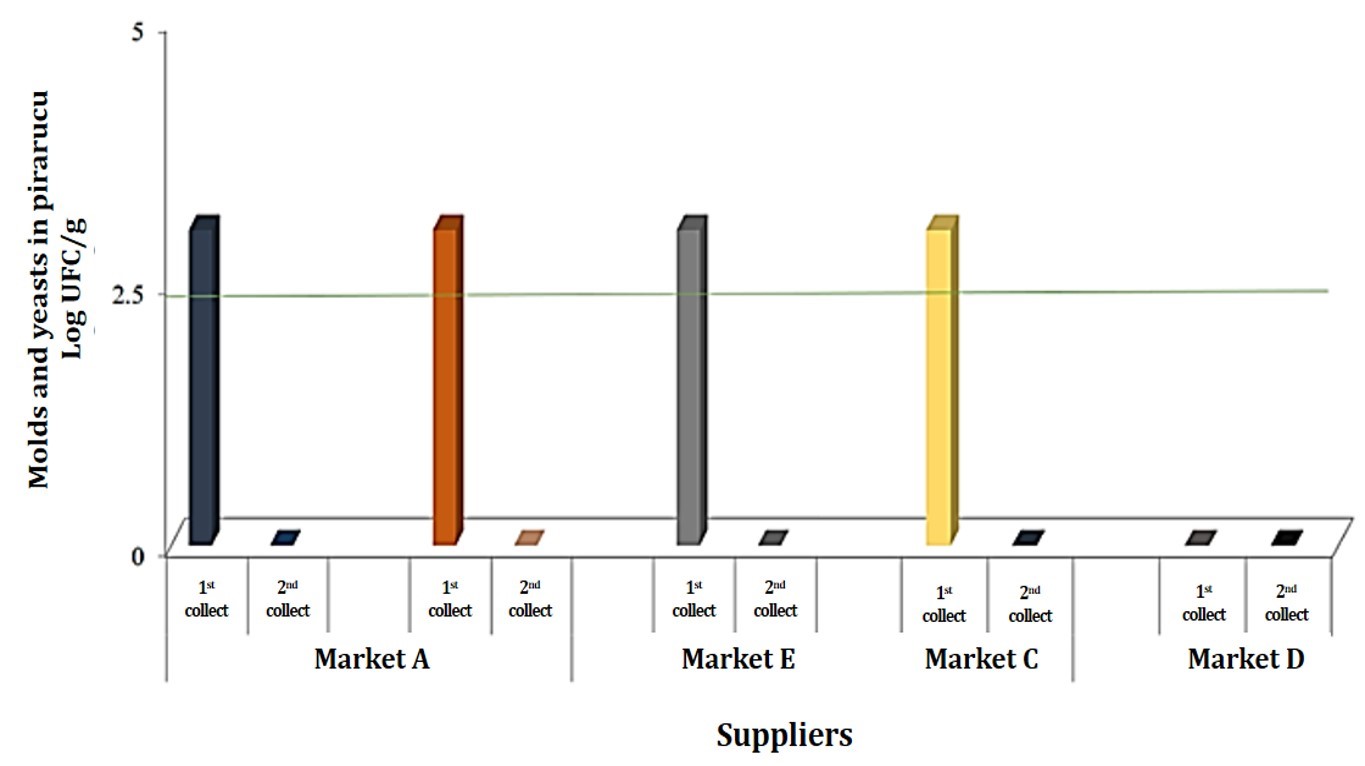Hygienic and sanitary characteristics of dry salted fish marketed in Porto Velho city, Rondônia – Brazil
DOI:
https://doi.org/10.21708/avb.2022.16.3.10747Resumo
Handcrafted salted fish is marketed weekly in retail markets and public fairs in the Porto Velho city, Rondônia sate, Brazil. Knowing the microbiological quality of these products is essential for public health, given that such products are not subject to any quality control. The aimed of the study was to evaluate the hygienic-sanitary characteristics and the moisture content of pirarucu and salted and dried shrimp marketed in the Porto Velho city. Twenty samples were collected, 10 pirarucu and 10 shrimp, in February and June 2019. For microbiological analysis, surface plating was performed using acidified potato agar, for molds and yeasts, and PCA agar for halophilic bacterias. Moisture was determined by gravimetry, using an oven at 105° C. Results for molds and yeasts on pirarucu ranged <10 log CFU/g (absent) to 3 log CFU/g. For shrimp, values ranged <10 log CFU/g to 3.57 log CFU/g. For halophilic bacterias, contents ranged <10 log CFU/g to 6.30 log CFU/g in pirarucu samples and <10 log CFU/g to 6.97 log CFU/g in shrimp samples. The variation in moisture content ranged 36.99 to 54.31% for pirarucu, and 40.6 to 56.82% for shrimp. The results obtained may be related to poor hygienic conditions in processing, the lack of hygiene of utensils and places for handling, or even the quality of the raw material used.
Downloads

Downloads
Publicado
Edição
Seção
Licença
Copyright (c) 2022 Acta Veterinaria Brasilica

Este trabalho está licenciado sob uma licença Creative Commons Attribution 4.0 International License.
Autores que publicam na Acta Veterinaria Brasilica concordam com os seguintes termos: a) Autores mantém os direitos autorais e concedem à revista o direito de primeira publicação, com o trabalho simultaneamente licenciado sob a Licença Creative Commons Attribution que permite o compartilhamento do trabalho com reconhecimento da autoria e publicação inicial nesta revista. b) Autores têm autorização para assumir contratos adicionais separadamente, para distribuição não-exclusiva da versão do trabalho publicada nesta revista (ex.: publicar em repositório institucional ou como capítulo de livro), com reconhecimento de autoria e publicação inicial nesta revista. c) Autores têm permissão e são estimulados a publicar e distribuir seu trabalho online (ex.: em repositórios institucionais ou na sua página pessoal) a qualquer ponto antes ou durante o processo editorial, já que isso pode gerar alterações produtivas, bem como aumentar o impacto e a citação do trabalho publicado (Veja O Efeito do Acesso Livre).


 Esta obra está licenciada com uma Licença
Esta obra está licenciada com uma Licença 